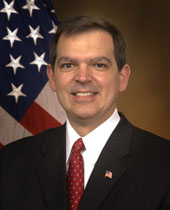
Carlos Manuel Prío Socarrás was a Cuban politician. He served as the President of Cuba from 1948 until he was deposed by a military coup led by Fulgencio Batista on March 10, 1952, three months before new elections were to be held. He was the first president of Cuba to be born in an independent Cuba and the last to gain his post through universal, contested elections. He went into exile in the United States, where he lived for 25 years before dying by suicide at age 73.

José Julián Martí Pérez was a Cuban nationalist, poet, philosopher, essayist, journalist, translator, professor, and publisher, who is considered a Cuban national hero because of his role in the liberation of his country from Spain. He was also an important figure in Latin American literature. He was very politically active and is considered an important philosopher and political theorist. Through his writings and political activity, he became a symbol of Cuba's bid for independence from the Spanish Empire in the 19th century, and is referred to as the "Apostle of Cuban Independence". From adolescence on, he dedicated his life to the promotion of liberty, political independence for Cuba, and intellectual independence for all Spanish Americans; his death was used as a cry for Cuban independence from Spain by both the Cuban revolutionaries and those Cubans previously reluctant to start a revolt.

Carlos Franqui was a Cuban writer, poet, journalist, art critic, and political activist. After the Fulgencio Batista coup in 1952, he became involved with the 26th of July Movement which was headed by Fidel Castro. Upon the success of the Cuban Revolution in 1959, he was placed in charge of the rebellion's newspaper Revolución, which became an official government publication. When he came to have political differences with the regime, he left Cuba with his family. In 1968 he broke with the Cuban government when he signed a letter condemning the Soviet invasion of Czechoslovakia. He became a vocal critic of the Castro government, writing frequently until his death on April 16, 2010.

The Sierra Maestra is a mountain range that runs westward across the south of the old Oriente Province in southeast Cuba, rising abruptly from the coast. The range falls mainly within the Santiago de Cuba and in Granma Provinces. Some view it as a series of connecting ranges, which join with others to the west. At 1,974 m (6,476 ft), Pico Turquino is the range's – and the country's – highest point. The area is rich in minerals, especially copper, manganese, chromium, and iron.
Enrique Emilio Ros y Pérez was a Cuban-American businessman, author, and activist opposed to Cuban president Fidel Castro.
Emecé Editores is an Argentine publishing house, a subsidiary of Grupo Planeta. Its catalogue contains books on history, politics, economics, art, religion, anthropology, biography, memoirs, children's literature, humor, cooking, popular science, self-help and popular psychology, and the complete works of various authors.

Daína Chaviano is a Cuban-American writer of French and Asturian descent. She has lived in the United States since 1991.
José Ignacio Rivero was a Cuban exile and journalist.

Mauricio J. Tamargo was the 14th Chairman of the Foreign Claims Settlement Commission. He was nominated by President George W. Bush in July 2001. He left the Justice Department in February 2010.
del Junco is a Spanish surname meaning “from the reeds”. The most notable family with this name is the Rodrigo del Junco family which originally came from Asturias, Spain. In the 16th century they immigrated to St. Augustine, Florida and then in the mid 17th century to Matanzas, Cuba. Their home in Matanzas was the Palacio de Junco and is now a museum. They also owned the Palmar de Junco where in 1874, the first game of baseball was played in Cuba. The Matanzas del Junco family have a large crypt in the Necropolis de San Carlos Borromeo.
Ricardo Pau-Llosa is a Cuban-American poet, art critic of Latin American art in the US and Europe, art collector, and author of short fiction.
The Centre for American Studies is an academic institution in Havana, Cuba. Established along similar institutions by the Cuban Government in 1964, it was intended to serve at the same time to provide intelligence information for Cuban leaders, and to provide propaganda by proposing to international audiences Cuban views on certain topics.

Dr. Carlos Márquez Sterling y Guiral was a Cuban lawyer, writer, politician and diplomat.

Cecilia Arizti Sobrino was a Cuban composer, pianist and music educator.
Juan de Miralles y Tizner was a Spanish arms dealer who became friends with George Washington during the American Revolutionary War. He supported the American cause financially, and served as a liaison between the colonists and the Spanish Crown.
Enrique Labrador Ruiz was a Cuban journalist, novelist, essayist, short story writer, and poet.

Jorge Enrique González Pacheco is an international award-winning Cuban poet, film industry professional, and cultural entrepreneur. He has a Bachelor's Degree in Latin American Literature from University of Havana, Cuba, and a Master's Degree in Hispanic Literature from Complutense University of Madrid, Spain.
Pedro Pérez Sarduy is an Afro-Cuban writer and broadcaster, who has published poetry and fiction, in addition to journalism. He gives lectures and reads his work at academic institutions internationally and is currently resident in London, UK.

Jesús A. Permuy is a Cuban-American architect, urban planner, human rights activist, art collector, and businessman. He is known for an extensive career of community projects and initiatives in Florida, Washington, D.C., and Latin America.
Miguel Jorge (1928–1984), also known as “Micky” Jorge, was a Cuban artist who was influential in the establishment of South Florida's early Latin American art market in the Greater Miami area from the 1960s through the 1980s.